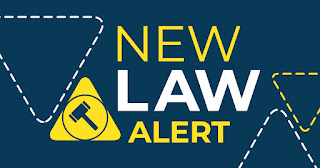It is the beginning of the end of paper copy lease agreements in NYS, at least for rent stabilized tenants.
Moving forward, rent stabilized tenants are going to be processing their leases electronically because Bill A02679 passed the legislature and is pending Gov. Hochul's signature. This Bill requires that the Division of Housing and Community Renewal ("DHCR") develops regulations allowing electronic leases and signatures to be used for both leases and lease renewals of rent stabilized tenants.
However, the Bill makes clear that electronic leases are not yet required. As such, those who may not be well-versed in technology, such as the Baby Boomer generation, need not worry about how this could affect their lease execution process as tenants will be able to choose whether or not they want to execute their lease via electronic means or via a traditional paper copy. A tenant will be presented with a form, developed by DHCR, in the top 6 languages that will confirm that the tenant has the choice whether to consent to the use of electronic records and signatures. Therefore, landlords will not be permitted to require their tenants to execute their lease by electronic means.
It is expected that electronic leases are going to become the norm sooner rather than later. They cut down on costs of office supplies, such as printer ink and paper, while provide for improved organization and retrieval. They save time by avoiding face-to-face meetings and can maximize safety in this COVID world.
Do you think most rent stabilized tenants will choose to have their leases executed electronically? Or, will paper copies stand the test of time in a constantly evolving technology driven world? Seems unlikely. It's my guess that as the Boomer generation dissipates, paper copy leases will as well.




